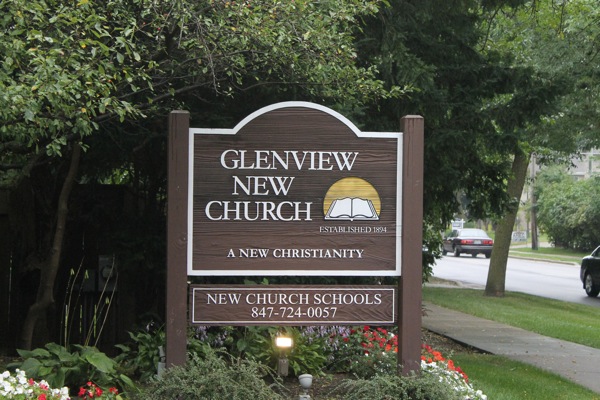The Glenview New Church was established in 1892. Since then, a community has been built around it. Senior Anneliese Peterson, a resident of the community, lives in the area but is not a member of the church.
“I love the community,” Peterson said. “It is a beautiful, quiet little retreat from the business of life. I love the pond and parks and quiet roads.”
Although she is not a member of the church, Peterson explained that they are still very much a part of the community. Senior Charlie Day, also not a member of the church, has similar feelings.
“I wouldn’t say it’s a big deal [that we aren’t members of the church], but it is without a doubt different,” Day explained. “There are a few other families in New Church that aren’t part of the church, but we are the exception to the rule.”
As written on the website, New Church is a “growing congregation of 165 families or households that focuses on healthy relationships, family values, marriage, and individual and collective spiritual growth.”
According to sophomore Amanda Buss, resident of the New Church, the New Church is a new form of Christianity.
“It’s similar to Catholicism or any other Christian faith but very applicable [to life],” Buss said. “We connect things, we look for a deeper meaning in everything and find something we can connect our lives to today.”
According to their website, the New Church is it’s own denomination of Christianity.
New Church has locations all over the country and even a few in other countries. The Glenview New Church School educates preschool through eighth graders.
“[New Church] taught like a regular school, except they incorporated teachings of the [religion] into it,” Buss explained. “We had to take religion and we would [go] to Chapel every morning. Basically it’s a lot different than public school and a lot smaller…I graduated with five people.”
Hartfield explained that the classrooms were split into five groups: preschool, kindergarten through second, third and fourth, fifth and sixth, and seventh and eighth grades. She also recalled the many unique experiences she had.
“We went on so many field trips,” Hartfield recalled. “We went to Mackinac Island for a week. We visit a lot of our friends from New Church in Oak Arbor, [Michigan]. We went on outdoor education field trips just for the day.”
Hartfield and Buss met people through different activities outside of New Church; however, they described their transitions to South to be difficult due to the change of atmosphere.
“When I came here I didn’t know [about] anything that to most kids was common sense,” Hartfield explained. “I didn’t know what to do when the bell rang.”
Many students do not practice the same religious values taught by New Church.
“Sophomore year in math class, my teacher mentioned something about New Church, and then one of the girls in my class, who was a senior at the time, was like, ‘Oh the cult’,” Hartfield explained. “My teacher got really offended…she took the girl out of the class.”
Buss also reflected upon the potential causes of misconceptions regarding the New Church.
“It is not a huge dominant religion,” Buss explained. “It is not hundreds of years old. It’s still a relatively new religion compared to some other ones.”
Even with rumors frequently circulating regarding their religion, both girls have learned how to constructively react to slander.
“I wasn’t offended by it at first, but now that I’m more mature I realize just to ignore it,” Hartfield said.









